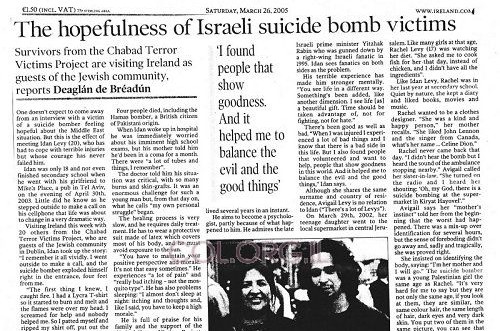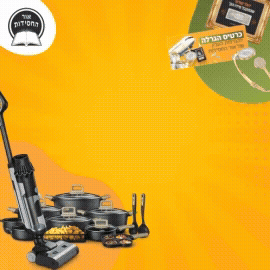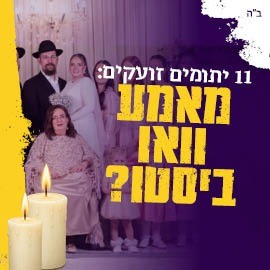מערכת COL
|
יום כ' אדר ב ה׳תשס״ה
31.03.2005
התקשורת האירית סיקרה באהדה את ביקור נפגעי הטרור
התקשורת האירית סיקרה באהדה את ביקור נפגעי הטרור בקהילה היהודית באירלנד בהזמנת שליח חב"ד בדבלין הרב זלמן לאנט, ובארגון מטה "צעירי-חב"ד למען נפגעי הטרור" בראשות הרב מנחם קוטנר. העיתון הפופולרי ביותר באירלנד ה-Irish Times פרסם בהרחבה על הביקור. בשגרירות ישראל בדבלין אמרו כי מעולם לא פורסמה עד כה כתבה אוהדת על ישראל בעיתון זה. גם ה-JTA סוכנות הידיעות היהודית העולמית ליוותה את נפגעי הטרור בביקורם באירלנד. יצויין, כי גם הטלויזיה המקומית שידרה במהדורה המרכזית את הביקור וסיפרה על הערבות בעם ישראל שהקהילה היהודית באירלנד חשה קשר ליהודי ארץ ישראל.

ה-Irish Times בכתבה נרחבת על הביקור
הכתבה שפורסמה ב: Irish Times:
Irish Times
26 March 2005
The hopefulness of Israeli suicide bomb victims
ISRAEL/IRELAND: Survivors from the Chabad Terror Victims Project are visiting Ireland as guests of the Jewish community, reports Deaglán de Bréadún.
One doesn't expect to come away from an interview with a victim of a suicide bomber feeling hopeful about the Middle East situation. But this is the effect of meeting Idan Levy (20), who has had to cope with terrible injuries but whose courage has never failed him.
Idan was only 18 and not even finished secondary school when he went with his girlfriend to Mike's Place, a pub in Tel Aviv, on the evening of April 30th, 2003. Little did he know as he stepped outside to make a call on his cellphone that life was about to change in a very dramatic way.
Visiting Ireland this week with 20 others from the Chabad Terror Victims Project, who are guests of the Jewish community in Dublin, Idan took up the story: "I remember it all vividly. I went outside to make a call, and the suicide bomber exploded himself right in the entrance, four feet from me.
"The first thing I knew, I caught fire. I had a Lycra T-shirt so it started to burn and melt and the flames were over my head. I screamed for help and nobody helped me. So I patted myself and ripped my shirt off, put out the fire and started helping people as much as I could.
"I took my girlfriend by the hand. Thank God nothing happened to her: she was inside. I waited for the ambulance to come, and they evacuated me to hospital."
Four people died, including the Hamas bomber, a British citizen of Pakistani origin.
When Idan woke up in hospital he was immediately worried about his imminent high school exams, but his mother told him he'd been in a coma for a month. There were "a lot of tubes and things, I remember".
The doctor told him his situation was critical, with so many burns and skin-grafts. It was an enormous challenge for such a young man but, from that day on, what he calls "my own personal struggle" began.
The healing process is very slow, and he requires daily treatment. He has to wear a protective suit made of latex which covers most of his body, and he must avoid exposure to the sun.
"You have to maintain your positive perspective and morale. It's not that easy sometimes." He experiences "a lot of pain" and "really bad itching - not the mosquito type". He has also problems sleeping: "I almost don't sleep at night: itching and thoughts and, like I said, you have to keep a high morale."
He is full of praise for his family and the support of the Chabad Terror Victims Project. "These people came with their arms open and told me and my parents, please let us help you." Idan compares the whole experience to being catapulted into space, with nothing to hang on to. His youth was cut short, and he lived several years in an instant.
He aims to become a psychologist, partly because of what happened to him. He admires the late Israeli prime minister Yitzhak Rabin who was gunned down by a right-wing Israeli fanatic in 1995. Idan sees fanatics on both sides as the problem.
His terrible experience has made him stronger mentally. "You see life in a different way. Something's been added, like another dimension. I see life [ as] a beautiful gift. Time should be taken advantage of, not for fighting, not for hate."
There's been good as well as bad. "When I was injured I experienced a lot of bad things and I know that there is a bad side in this life. But I also found people that volunteered and want to help, people that show goodness in this world. And it helped me to balance the evil and the good things," Idan says.
Although she shares the same surname and country of residence, Avigail Levy is no relation to Idan ("There's a lot of Levys").
On March 29th, 2002, her teenage daughter went to the local supermarket in central Jerusalem. Like many girls at that age, Rachel Levy (17) was watching her diet. "She asked me to cook fish for her that day, instead of chicken, and I didn't have all the ingredients".
Like Idan Levy, Rachel was in her last year at secondary school. Quiet by nature, she kept a diary and liked books, movies and music.
Rachel wanted to be a clothes designer. "She was a kind and happy person," her mother recalls. "She liked John Lennon and the singer from Canada, what's her name ... Celine Dion."
Rachel never came back that day. "I didn't hear the bomb but I heard the sound of the ambulance stopping nearby." Avigail called her sister-in-law. "She turned on the radio and I heard her shouting: 'Oh, my God, there is a suicide bombing at the supermarket in Kiryat Hayovel'."
Avigail says her "mother's instinct" told her from the beginning that the worst had happened. There was a mix-up over identification for several hours, but the sense of foreboding didn't go away and, sadly and tragically, she was proved right.
She insisted on identifying the body, saying: "I'm her mother and I will go." The suicide bomber was a young Palestinian girl the same age as Rachel. "It's very hard for me to say but they are not only the same age, if you look at them, they are similar, the same colour hair, the same length of hair, dark eyes and very dark skin. You put two of them in the same picture, you can see that they even look alike.
"The manager of the supermarket told me the next day he saw them both going inside the supermarket and he said that he was sure that they are two sisters coming for shopping together."
http://www.ireland.com/newspaper/world/2005/0326/3872472475FR26DEAGLAN
Irish Times
26 March 2005
The hopefulness of Israeli suicide bomb victims
ISRAEL/IRELAND: Survivors from the Chabad Terror Victims Project are visiting Ireland as guests of the Jewish community, reports Deaglán de Bréadún.
One doesn't expect to come away from an interview with a victim of a suicide bomber feeling hopeful about the Middle East situation. But this is the effect of meeting Idan Levy (20), who has had to cope with terrible injuries but whose courage has never failed him.
Idan was only 18 and not even finished secondary school when he went with his girlfriend to Mike's Place, a pub in Tel Aviv, on the evening of April 30th, 2003. Little did he know as he stepped outside to make a call on his cellphone that life was about to change in a very dramatic way.
Visiting Ireland this week with 20 others from the Chabad Terror Victims Project, who are guests of the Jewish community in Dublin, Idan took up the story: "I remember it all vividly. I went outside to make a call, and the suicide bomber exploded himself right in the entrance, four feet from me.
"The first thing I knew, I caught fire. I had a Lycra T-shirt so it started to burn and melt and the flames were over my head. I screamed for help and nobody helped me. So I patted myself and ripped my shirt off, put out the fire and started helping people as much as I could.
"I took my girlfriend by the hand. Thank God nothing happened to her: she was inside. I waited for the ambulance to come, and they evacuated me to hospital."
Four people died, including the Hamas bomber, a British citizen of Pakistani origin.
When Idan woke up in hospital he was immediately worried about his imminent high school exams, but his mother told him he'd been in a coma for a month. There were "a lot of tubes and things, I remember".
The doctor told him his situation was critical, with so many burns and skin-grafts. It was an enormous challenge for such a young man but, from that day on, what he calls "my own personal struggle" began.
The healing process is very slow, and he requires daily treatment. He has to wear a protective suit made of latex which covers most of his body, and he must avoid exposure to the sun.
"You have to maintain your positive perspective and morale. It's not that easy sometimes." He experiences "a lot of pain" and "really bad itching - not the mosquito type". He has also problems sleeping: "I almost don't sleep at night: itching and thoughts and, like I said, you have to keep a high morale."
He is full of praise for his family and the support of the Chabad Terror Victims Project. "These people came with their arms open and told me and my parents, please let us help you." Idan compares the whole experience to being catapulted into space, with nothing to hang on to. His youth was cut short, and he lived several years in an instant.
He aims to become a psychologist, partly because of what happened to him. He admires the late Israeli prime minister Yitzhak Rabin who was gunned down by a right-wing Israeli fanatic in 1995. Idan sees fanatics on both sides as the problem.
His terrible experience has made him stronger mentally. "You see life in a different way. Something's been added, like another dimension. I see life [ as] a beautiful gift. Time should be taken advantage of, not for fighting, not for hate."
There's been good as well as bad. "When I was injured I experienced a lot of bad things and I know that there is a bad side in this life. But I also found people that volunteered and want to help, people that show goodness in this world. And it helped me to balance the evil and the good things," Idan says.
Although she shares the same surname and country of residence, Avigail Levy is no relation to Idan ("There's a lot of Levys").
On March 29th, 2002, her teenage daughter went to the local supermarket in central Jerusalem. Like many girls at that age, Rachel Levy (17) was watching her diet. "She asked me to cook fish for her that day, instead of chicken, and I didn't have all the ingredients".
Like Idan Levy, Rachel was in her last year at secondary school. Quiet by nature, she kept a diary and liked books, movies and music.
Rachel wanted to be a clothes designer. "She was a kind and happy person," her mother recalls. "She liked John Lennon and the singer from Canada, what's her name ... Celine Dion."
Rachel never came back that day. "I didn't hear the bomb but I heard the sound of the ambulance stopping nearby." Avigail called her sister-in-law. "She turned on the radio and I heard her shouting: 'Oh, my God, there is a suicide bombing at the supermarket in Kiryat Hayovel'."
Avigail says her "mother's instinct" told her from the beginning that the worst had happened. There was a mix-up over identification for several hours, but the sense of foreboding didn't go away and, sadly and tragically, she was proved right.
She insisted on identifying the body, saying: "I'm her mother and I will go." The suicide bomber was a young Palestinian girl the same age as Rachel. "It's very hard for me to say but they are not only the same age, if you look at them, they are similar, the same colour hair, the same length of hair, dark eyes and very dark skin. You put two of them in the same picture, you can see that they even look alike.
"The manager of the supermarket told me the next day he saw them both going inside the supermarket and he said that he was sure that they are two sisters coming for shopping together."
http://www.ireland.com/newspaper/world/2005/0326/3872472475FR26DEAGLAN

הוסף תגובה
0 תגובות

















 מאפשרים לכם לקבל
מאפשרים לכם לקבל
